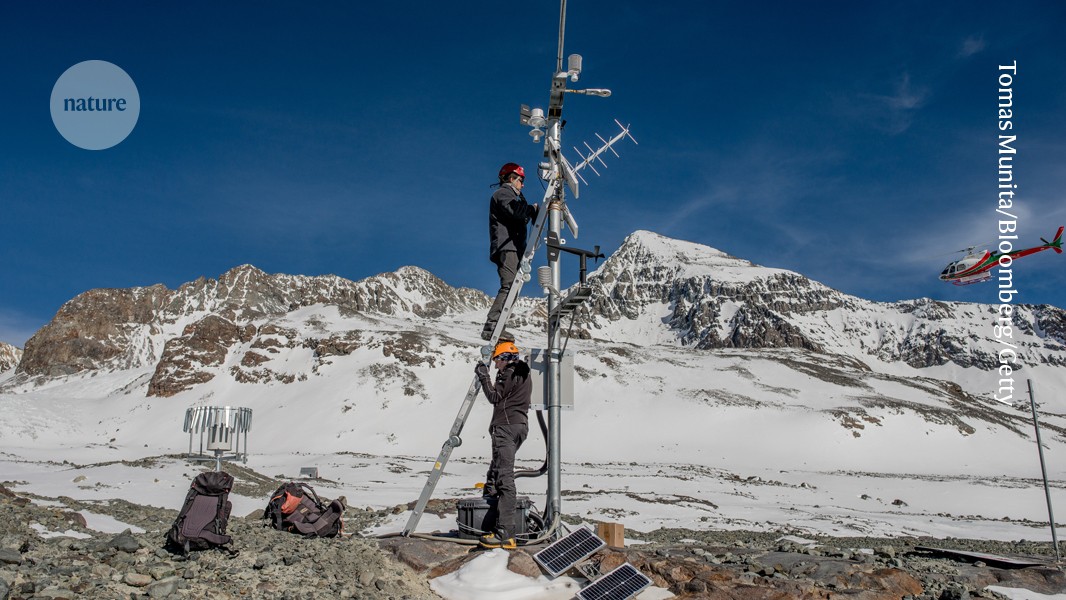Science’s ‘Gollum effect’: PhDs bear brunt of territorial behaviour

Survey respondents at all career stages report colleagues engaging in territorial and possessive behaviours — but early-career researchers are most often affected

Ecologists were among the researchers surveyed about the prevalence of territorial behaviours such as data hoarding.Credit: Tomas Munita/Bloomberg/Getty
Almost half of the scientists who responded to a survey have experienced territorial and undermining behaviours from other scientists — most commonly during their PhD studies1. Of those affected, nearly half said that the perpetrator was a high-profile researcher, and one-third said it was their own supervisor.
Most of the survey respondents were ecologists, but the study’s organizers suspect that surveys focusing on other disciplines would yield similar results.
The gatekeeping behaviours that the study documents “damage careers, particularly of early-career and marginalized researchers”, says lead author Jose Valdez, an ecologist at the German Centre for Integrative Biodiversity Research in Leipzig. “Most alarming was that nearly one in five of those affected left academia or science entirely.”
Valdez and his colleagues call the possessiveness shown by many researchers the ‘Gollum effect’, after the character Gollum in The Lord of the Rings (1954–55), whose one goal in life is to hoard an object of great power for himself. The study was published today in One Earth.
“It makes something tangible that all researchers probably have experienced one way or another: the territoriality of other researchers and fear of being ‘scooped’,” says computational social scientist Jana Lasser at the University of Graz in Austria, who co-founded the Network against Abuse of Power in Science and was not involved in the study.
Unnamed hazard
That academic workplaces are often toxic environments is hardly news. But “despite growing attention to issues such as bullying, harassment and mental health in academia”, Valdez says, “the root cause of many of these problems — the toxic possessiveness and gatekeeping — didn’t have a name or formal recognition”. Enter the Gollum effect, which Valdez defines as including possessive behaviours, attempts to undermine others, and efforts to restrict access to data, resources or opportunities.
Valdez and his colleagues distributed their survey through professional conservation and ecology societies and social media. To reduce self-selection bias, they presented it as a survey about experiences at different career stages, not mentioning the Gollum effect until the survey was underway. The survey drew 563 responses, representing 64 nationalities.
Familiar monster
The Gollum effect was common: 44% of respondents said they had experienced it. Of these, 18% had experienced it many times. In 46% of cases, scientists said that the perpetrator was a high-profile researcher, and 35% said it was their supervisor.
Among those who experienced the Gollum effect, 54% said it happened during their PhD studies, 32% during their master’s studies, 31% as a postdoctoral researcher and 27% as an undergraduate. But independent researchers, senior researchers and even professors experienced it, too.
“The most surprising finding was the profound impact of the Gollum effect on career trajectories,” says Valdez. More than two-thirds of those affected said that the experience had had a moderate or large effect on their career path, and some 20% had left academia or science completely as a result (see ‘Toll of territorial behaviours’).

Source: Ref. 1.
Enjoying our latest content?
Login or create an account to continue
- Access the most recent journalism from Nature's award-winning team
- Explore the latest features & opinion covering groundbreaking research
or
Sign in or create an accountdoi: https://doi.org/10.1038/d41586-025-01588-w
This story originally appeared on: Nature - Author:Julian Nowogrodzki


















